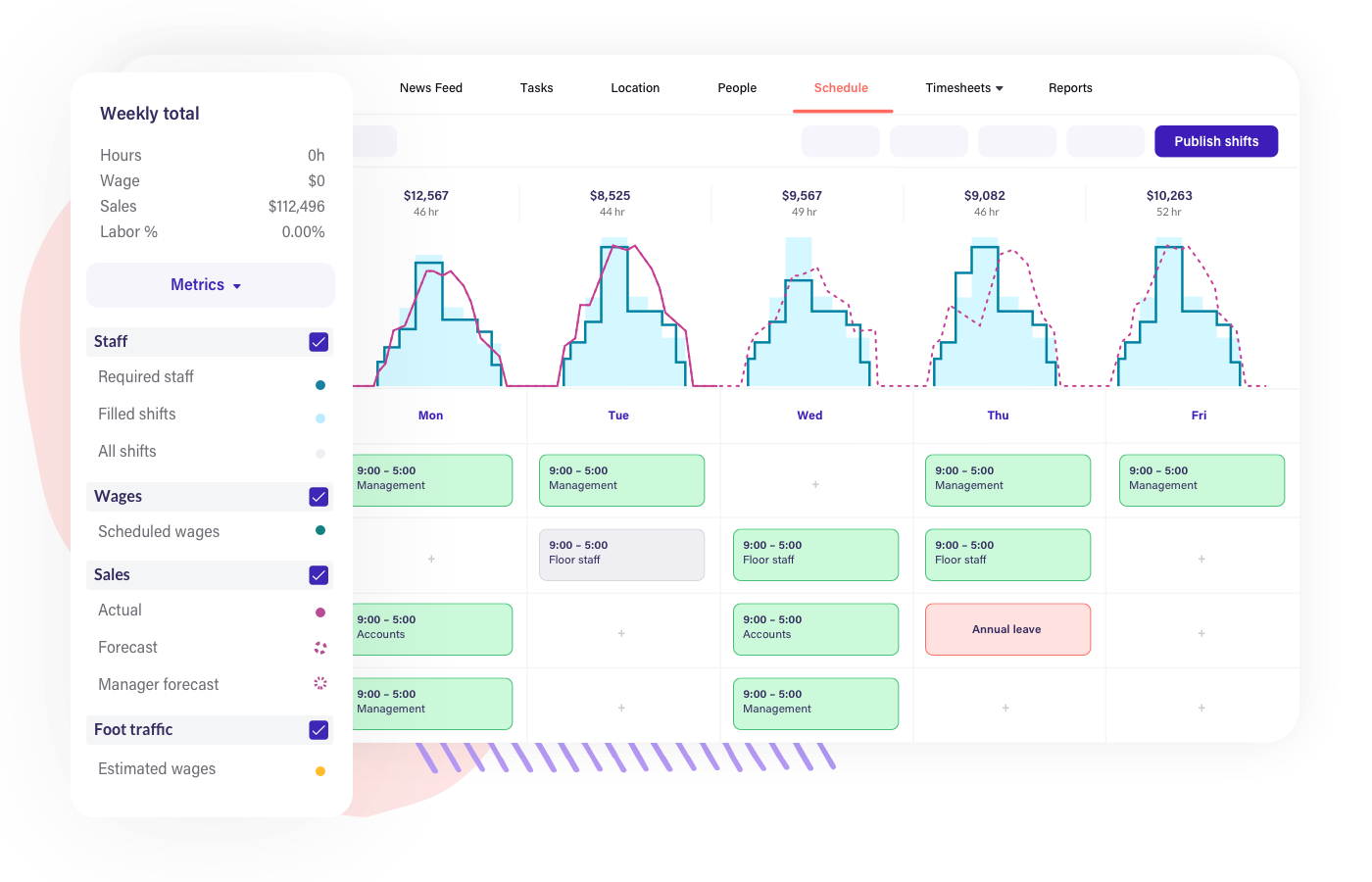AI labor optimization software to build smarter, more profitable schedules
- Efficiently reduce labor cost
- Ensure optimal coverage across the schedule
- Scale the perfect schedule to meet changing demand
- Minimise administration time

TRUSTED BY 385,000+ WORKPLACES ACROSS THE GLOBE






Powerful insights at your fingertips
Leverage data and insights to build
a better schedule

Business Insights Dashboard
Get the whole picture on performance
With all your key business trends accessible in a central dashboard, you can use unique data-driven insights to make cost improvements across your schedule.

Scheduling Statistics for Mobile
Make informed decisions on the go
With real-time wage to sales data pulled directly into our mobile apps, you can confidently make important scheduling decisions from wherever you’re running your business.
AMERICA'S LEADING WORKFORCE MANAGEMENT SOLUTION






Budgets and Forecasting
Control costs with clear benchmarks
Use hour and wage budgets to set tangible targets for cost-effective scheduling. Real-time variance tracking provides the guardrails to self-correct while scheduling.

Custom Labor Models
Take the guesswork out of scheduling
Create the perfect, scalable schedule based on unique business logic with custom demand-based rules. Ensure the minimum coverage requirements are met — while staying within budget.

Software Integrations
Link Deputy with your POS and payroll systems
Connect Deputy with your POS provider to pull sales data into your schedule. With accurate demand data in Deputy, you can save even more administration time and reduce errors.
Try the ultimate scheduling app today.
Start your free trial now!
Why use Deputy?
Our software’s power, simplicity, and mobility has earned us 385,000 happy customers — who are our greatest advocates. With Deputy, you’re not just saving time and money. You’re making life easier for your teams and helping them provide better service.
Discover more Deputy features
Frequently asked questions
- What is demand forecasting?
Demand forecasting is the process of gathering historical data to estimate expected future customer demand. To businesses, this process helps estimate the proper staff needed to meet future needs while avoiding unnecessary staffing costs.
- What is the benefit of demand forecasting?
Demand forecasting can help management understand the optimal labor force needed to support customer demand at a given time. Benefits also include the ability to prevent staff shortages in scheduling, reduce unnecessary labor costs, and scale your optimal schedule.
- How can I increase efficiency with demand forecasting?
Because demand forecasting takes into account future staffing needs, it ultimately impacts labor costs. Understanding future demand and adjusting scheduling makes for a more efficient and cost-savings scheduling process for your business.
- Will I save on labor costs using the Deputy app?
The demand forecasting feature in Deputy will help management teams and leaders lower labor costs and optimize schedule coverage by leveraging historical data from your POS and payroll systems. Using one central dashboard, you're able to visualize insights to help make smarter scheduling decisions.
- How does employee scheduling help scale my business?
Using a platform for employee scheduling can provide huge time-savings for management teams allowing leaders to address larger business issues or other immediate operational concerns. Using demand-based automation models, you are able to create better schedules that are constantly adapting to changing needs.
- Understand if Deputy is right for you
- Ask any burning questions
- Learn how our software will save you time and money


